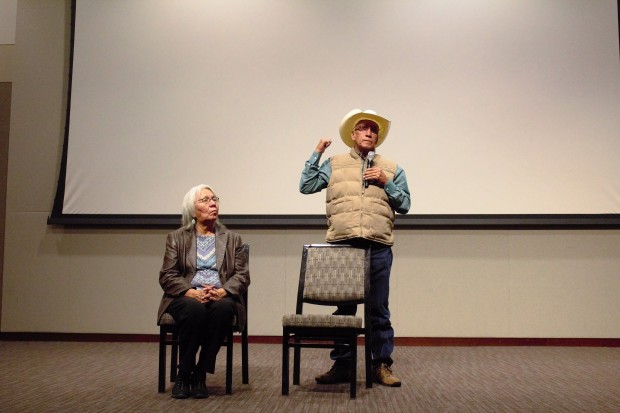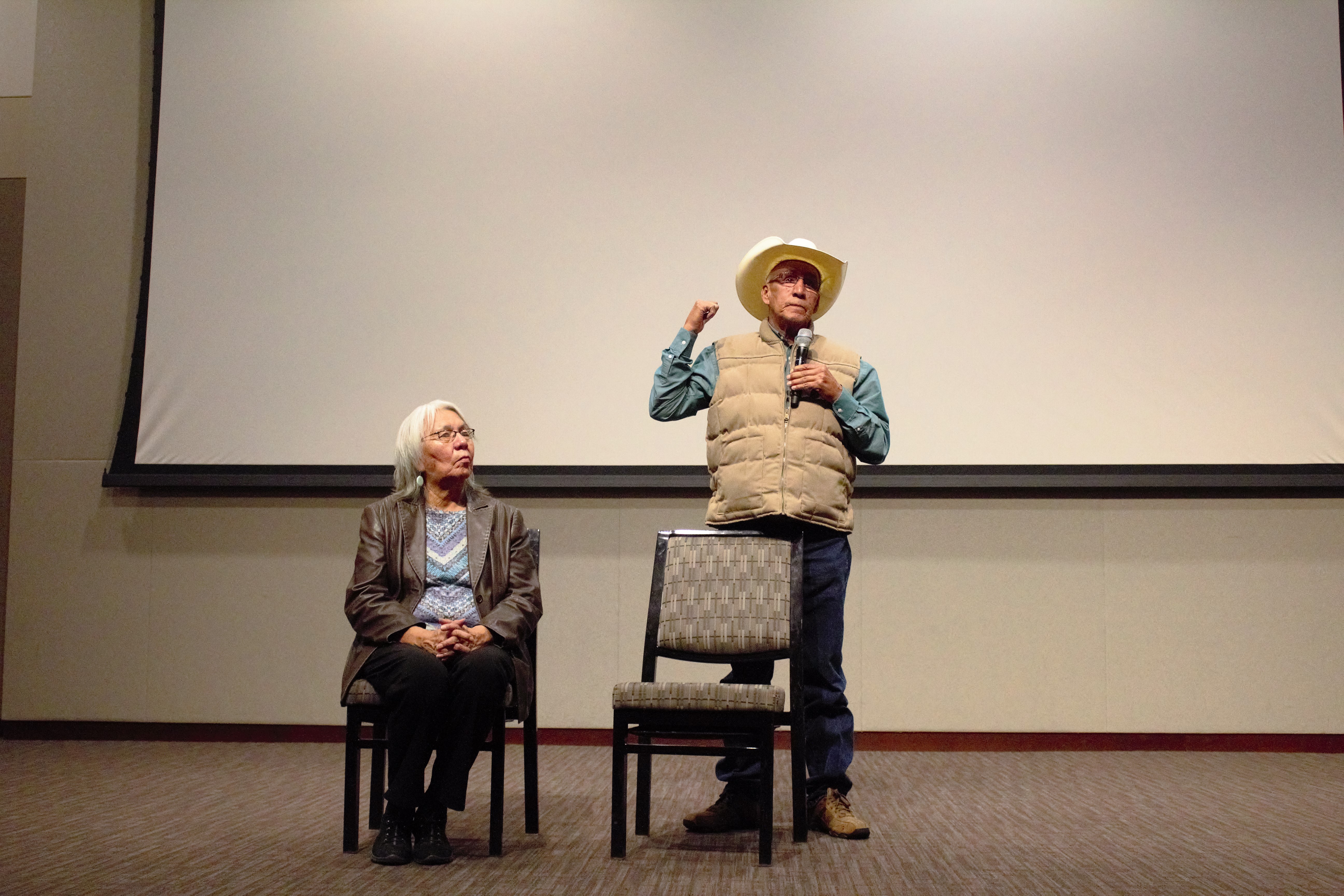
The Diversity Activities Board at the University of St. Thomas presented a film screening Tuesday, Nov. 8 of Dakota 38, a documentary that traced the journey of Native American spiritual leader and Vietnam War veteran Jim Miller.
In the spring of 2005, Miller dreamed that he was riding on horseback across the plains of South Dakota. Just before he woke up, Miller arrived at a riverbank in Minnesota, only to see 38 of his Dakota ancestors hanged. What he didn’t know at first was that 143 years ago, his dream was a reality.
On Dec. 26, 1862, 38 Dakota men were hanged from a single scaffolding in what remains the largest one-day execution in American history, according to the documentary. The execution, which was issued by President Abraham Lincoln, took place in Mankato, Minnesota, about 90 miles south of St. Thomas.
The documentary followed a group of riders on horseback who retraced Miller’s dream from Lower Brule, South Dakota, to arrive in Mankato on the anniversary of the event. Throughout the film, the purpose of the journey was clear: to reconcile and accept the past in order to move forward.
“Despite the horrors, we can still have forgiveness. We can still have forgiveness in our hearts for everything that happened to us,” Alberta Miller, Jim’s wife, said during the Q&A following the screening.
Keanu Daley, a first-year international student from Jamaica, was one of about 20 or so students who showed up to watch the documentary.
“I think these are the documentaries the school needs to make mandatory so as to combat racism and bring about awareness on the campus,” Daley said after the screening. “I hope students get a sense of their history and ancestors because if we don’t know our past then we will be lost when facing our future and purpose.”
Initially, the journey wasn’t going to be documented. But Jim Miller said that, through prayer, he came to see it was a story that needed to be told, and one that would be free for all to see.
“Prayer brought this to existence. I believe in it, I believe in myself,” Jim Miller said. “I get to stand up here and I’m proud to tell you that I’m a grandpa, I’m sober, and I’m a leader in my community.”
And it’s a story that is still relevant to the issues happening today. Just two days before the screening, Jim and Alberta Miller were in North Dakota for the Dakota Access Pipeline Protests.
“Just as many Indians were there as just as many white people. And black. There were thousands of them there. They looked like one big, happy family,” Jim Miller said.
“What I’m seeing there is an expression of love and the healing and the reconciliation between a lot of races, between a lot of religious organizations and between a lot of ages,” Alberta Miller added. “It’s a really powerful place to be.”
The Millers agree that now, more than ever, it is important to become educated in order to initiate change, whether it be creating safe places for Native American students on campus or simply just acknowledging the events that occurred on that fateful day on Dec. 26, 1862.
“This is your history, our history. We’re all one people. It’s so important, as educators, that we teach the entire history,” Alberta said. “It is critical that our young people know our story.”
Danielle Wong can be reached at wong0031@stthomas.edu.

